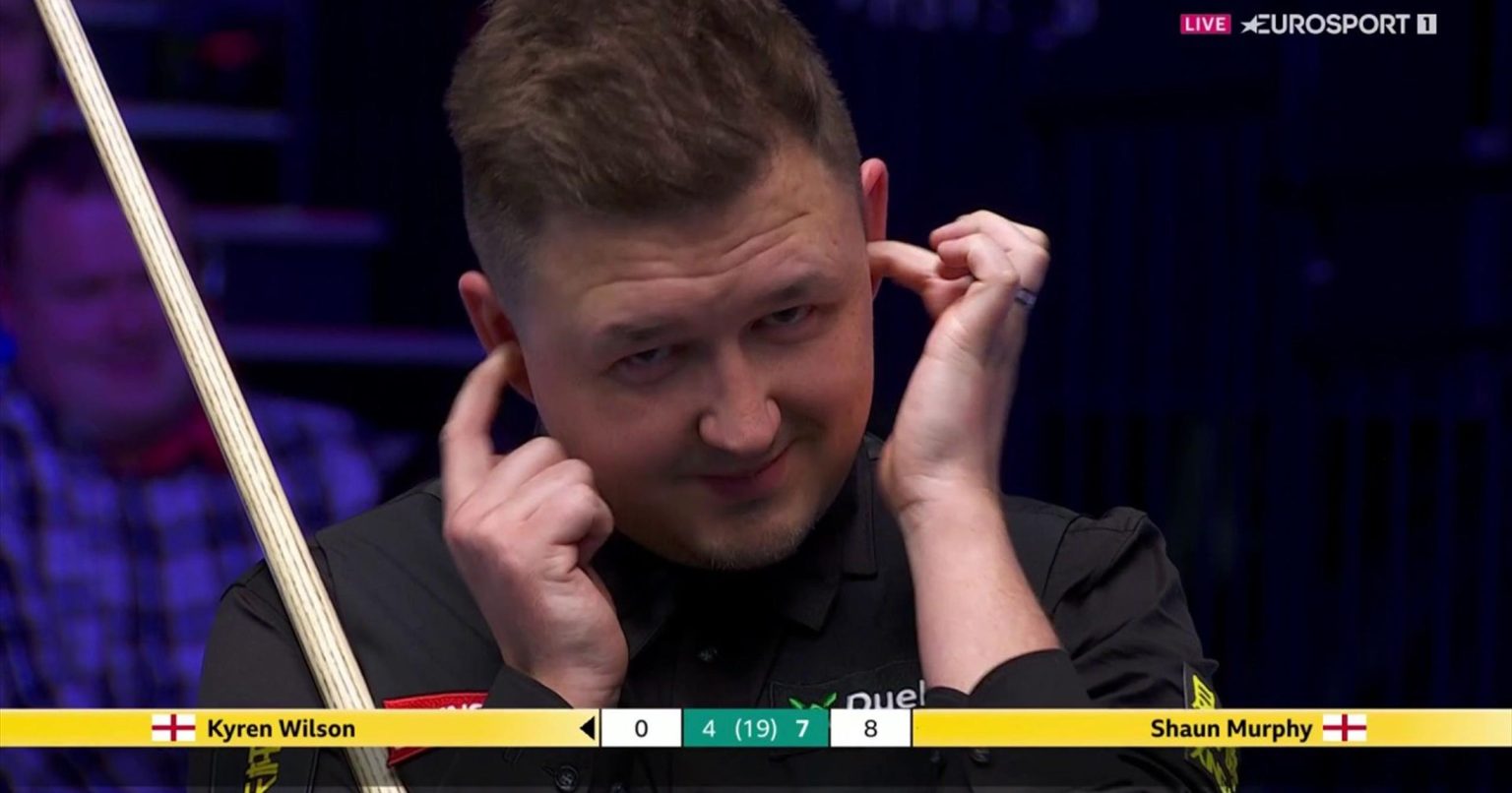Kyren Wilson’s theatrical gesture of plugging his ears during the Masters final, as referee Olivier Marteel delivered a caution for a potential third consecutive miss, sparked a debate on sportsmanship, the rules of snooker, and the psychological pressures inherent in high-stakes competition. Wilson’s action, while unconventional and perhaps perceived as disrespectful by some, highlighted the intense tension he was experiencing while facing a potentially frame-losing situation. The “three-miss rule,” designed to prevent deliberate stalling and maintain the flow of the game, loomed large in that moment, and Wilson’s reaction, impulsive though it may have been, offered a glimpse into the mental fortitude required to compete at the highest level of professional snooker. His gesture was not necessarily directed at the referee personally, but rather a manifestation of his internal struggle to manage the pressure and maintain his composure.
The incident raises questions about the appropriateness of such displays of emotion in professional sport. While some might argue that Wilson’s actions were unsportsmanlike and disrespectful towards the referee and the game itself, others would contend that they reflected the immense pressure he faced. In the crucible of a major final, with a significant title at stake, players are subject to intense scrutiny and psychological strain. Their reactions, while sometimes unconventional, can be viewed as a natural byproduct of the high-pressure environment. Wilson’s ear-plugging, while visually striking, could be interpreted as a coping mechanism, a way to block out the external pressures and focus on the task at hand. It underscored the fine line between maintaining composure and succumbing to the emotional weight of the moment.
The “three-miss rule” itself, though seemingly straightforward, introduces a complex layer of strategy and psychology to snooker. It’s not simply a matter of missing the intended ball; the referee must judge whether the player had a “clear sight” of the ball and made a genuine attempt to pot it. This subjective element can lead to contentious situations, as players and referees might differ on the interpretation of “clear sight.” The rule also adds a psychological dimension, as the threat of conceding a frame can weigh heavily on a player’s mind, particularly in crucial moments. Wilson’s reaction, in this context, can be seen as a manifestation of this psychological pressure, the fear of falling foul of the rule and the potential consequences.
The incident also highlights the role of the referee in maintaining order and decorum in a sport often characterized by its quiet intensity. Olivier Marteel, a highly respected referee, handled the situation with professionalism and composure. While Wilson’s actions might have been perceived as challenging, Marteel remained calm and continued with the established procedure, issuing the warning without allowing himself to be drawn into a confrontation. His conduct exemplified the crucial role referees play in maintaining the integrity of the game, ensuring fair play while managing the emotions and pressures that often accompany high-level competition.
The debate surrounding Wilson’s actions extends beyond the immediate context of the Masters final. It touches upon broader questions about sportsmanship, emotional expression, and the pressures faced by professional athletes. While some may criticize Wilson’s behavior as unprofessional, others will empathize with the immense pressure he was under. Ultimately, the incident serves as a reminder that even in the seemingly controlled environment of professional snooker, human emotions can and do play a significant role. The pressure to perform, the fear of failure, and the weight of expectation can all contribute to moments of intense emotion, sometimes manifested in unexpected ways.
In conclusion, Kyren Wilson’s ear-plugging gesture, while unconventional and potentially controversial, provides a fascinating insight into the psychological pressures of professional sport. The incident generated discussion about sportsmanship, the interpretation of the rules, and the role of the referee in managing high-stakes competition. While some might view Wilson’s actions as disrespectful, others recognize them as a human response to immense pressure. The debate surrounding this incident underscores the complex interplay of rules, psychology, and emotion in the world of professional snooker, reminding us that even in the most controlled environments, the human element remains a powerful and unpredictable force. The “three-miss rule,” while intended to maintain the flow of the game, also adds a layer of psychological complexity, and Wilson’s reaction served as a vivid illustration of this. Ultimately, the incident provides a lens through which to examine not only the specific rules of snooker but also the broader dynamics of sportsmanship, pressure, and emotional expression in the context of professional competition.















